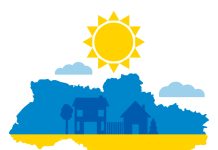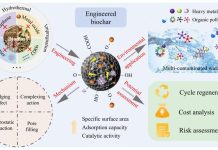Martin W. W. Horn, Lord Mayor of Freiburg and President of ICLEI Europe, discusses the intersection of digitalisation and sustainability, using Freiburg’s urban development as an example
Freiburg, located in the southwest of Germany, stands as a lighthouse of innovation and commitment in the ever-evolving landscape of urban governance. Addressing the complex challenges our cities currently face requires an approach that connects social inclusion, climate action, and biodiversity restoration. A solid political vision at all levels of governance, European, national and local, is essential to driving change and enabling the well-being and livelihood of our citizens. The City of Freiburg is determined to uphold this goal, and its unwavering dedication remains at the forefront of this endeavour.
Many of Freiburg’s initiatives serve as models both regionally and beyond. Two examples are the visionary work in Vauban, an environmentally conscious and family-friendly district, and the New City Hall, a highly energy-efficient public building that has received national awards and international recognition, showcase how local governments can balance between economic considerations and environmental ambitions to ensure modern and future-proof infrastructure. Our success is not the result of individual efforts; it is attributable to Freiburg’s robust, wide-reaching networks and strong ambition. These range from local partnerships within the city to collaborations at regional, national, and European levels, highlighting the importance of working together for a sustainable future.
Addressing societal and environmental challenges
Digital infrastructure should help address today’s societal and environmental challenges. We support the purpose-driven, human-centric, sustainable vision for society in the digital decade. Freiburg adopts green technologies to support the transformative processes in cities and communities if they take place under sustainable, measurable, standardised, open and inclusive frameworks. Freiburg is making significant strides in recognising the twin transitions of digitalisation and sustainability and the need for these to be jointly addressed to create meaningful progress.
Through a strategic combination of smart meter rollouts, environmental monitoring, intelligent traffic management, and last-mile logistics solutions, Freiburg tackles immediate urban needs while setting a long-term vision for sustainability and citizen engagement. Connecting agendas in this way to enhance urban quality of life positions Freiburg as a leader in sustainable city development.
Concrete examples of our initiatives support this claim. In 2022, the City Council advanced the goal of achieving climate neutrality by 2035. To this end, Freiburg has implemented numerous impactful projects, from expanding photovoltaic and wind energy projects to comprehensive district heating planning and designing a sustainable energy plan that serves our citizens’ needs. Our climate change efforts encompass mitigation, adaptation, and resilience strategies, which are supported by various projects utilising advanced sensor networks and data analytics to predict and manage urban risks, exemplifying how digitalisation enhances urban resilience.
Green technologies and digital transformation processes
We acknowledge the role that green technologies and digital transformation processes play in advancing environmental and climate goals at the local level. Working inclusively and closely with partners and experts is critical to benefitting from cutting-edge technologies. The Smart City project DATEN:RAUM:FREIBURG, which facilitates efficient urban planning, highlights our commitment to leveraging digital solutions for sustainable development. By linking mobility and urban planning through comprehensive data governance, Freiburg has successfully implemented real-time technologies to collect vital mobility data, such as charging point occupancy and traffic flows, which has been instrumental in refining our mobility planning.
These initiatives are part of a larger, coordinated strategy. We depend on solid stakeholder engagement to advance the twin transition. Freiburg actively involves its citizens in data collection and decision-making, utilising campaigns, forums, and digital platforms
to boost participation and digital literacy. We are committed to transparency and accountability, ensuring our citizens are informed and involved in decisions affecting them.
Climate policy and research invariably have economic implications. New businesses and jobs are being created, with local artisans installing photovoltaic systems and local enterprises supported through the transformation towards a sustainable future. This economic dimension is crucial, especially in the context of the European Green Deal, where themes around financing and city-to-business collaborations are increasingly prominent. Freiburg’s approach ensures that the economic benefits of green policies are realised locally, fostering a resilient and thriving community and promising a prosperous future.
As part of the global ICLEI network, we contribute to an enhanced understanding of the risks and opportunities of digital and green transformations, as it may enable more integrated technical and sustainability agendas. Critical and analytic considerations of digital services and solutions are key for a green, just and prosperous Europe, and Freiburg continues to be a frontrunner in embracing change.
As a growing and prosperous city, we are planning the next milestone: a new district for around 15,000 people. The new Dietenbach district will be, in every respect, a lighthouse project for exemplary sustainable development. In addition to researchers and scientists, companies, social associations, religious groups and, most importantly, the people for whom we are building this new district are also involved in the planning.
The complex interplay between green and digital technologies
We share our work with the community of Sustainable Cities and Towns at Aalborg 2024, where we share our insights into data-driven approaches in addressing challenges and advancing urban development as part of the discussions about the complex interplay between green and digital technologies, the need for shared governance, integrated finance and cohesive transition in building a future of sustainable cities in Europe. Our commitment is evident in our strategic projects and policy directions. As a public entity, we cannot merely react to changes but must actively shape our future, inspiring others to follow our lead.
Nevertheless, implementing the European Green Deal represents a significant challenge that will require immense financial investment. Constantly new funding programmes and recurring application procedures need to do justice to the permanent task of climate protection. They contradict the need for predictability and legal certainty and lead to an inefficient administrative burden.
Our early acceptance of the need for change, combined with our vital networking and collaborative efforts, enables continuous innovation and progress. As we look to the future, Freiburg remains steadfast in our commitment to leading the way in creating sustainable, resilient, and digitally advanced urban environments, inspiring others to join us in this crucial mission.











